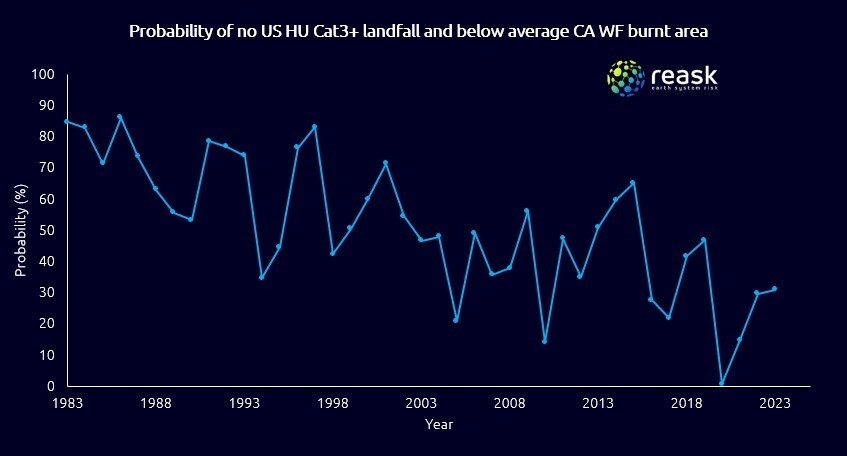Research
May 27, 2024
A machine learning approach to modeling tropical cyclone wind field uncertainty

Thomas Loridan

Abstract
Tropical cyclone (TC) risk assessment models and probabilistic forecasting systems depend on large ensembles to simulate storm tracks, intensities, and the spatial distribution of damaging winds. Because generating such ensembles is computationally demanding, TC winds are often represented using simplified parametric formulas.
These simplifications can underestimate the true variability of wind fields, limiting the accuracy of risk assessments. This study investigates the use of machine learning algorithms as an alternative approach to capture a broader range of TC wind behaviours.
Using high-resolution simulations from the Weather Research and Forecasting (WRF) model for the western North Pacific, the research applies principal component analysis (PCA) to decompose wind fields, followed by a quantile regression forest model to predict conditional distributions of the principal components. This allows uncertainty in wind-field predictions to be explicitly modelled and visualized.
By repeatedly sampling from these distributions, the method produces probabilistic maps showing the likelihood of exceeding given wind speed thresholds. Integrated into a TC risk assessment framework, this approach provides a more comprehensive view of potential wind field patterns and their implications for risk evaluation.
Stay in the loop
Sign up for the Reask newsletter for the latest climate science, model updates, and industry insights





